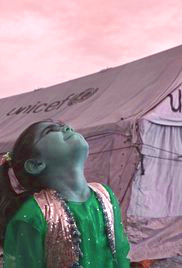
Art at its most significant is a Distant Early Warning System that can always be relied on to tell the old culture what is beginning to happen to it.
--Marshall McLuhan

When we try to pick out anything by itself, we find it hitched to everything else in the Universe.
--John Muir
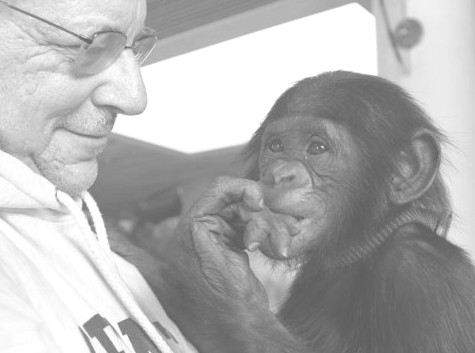
Loyalty to the country always: loyalty to the government WHEN it deserves it.
--Mark Twain
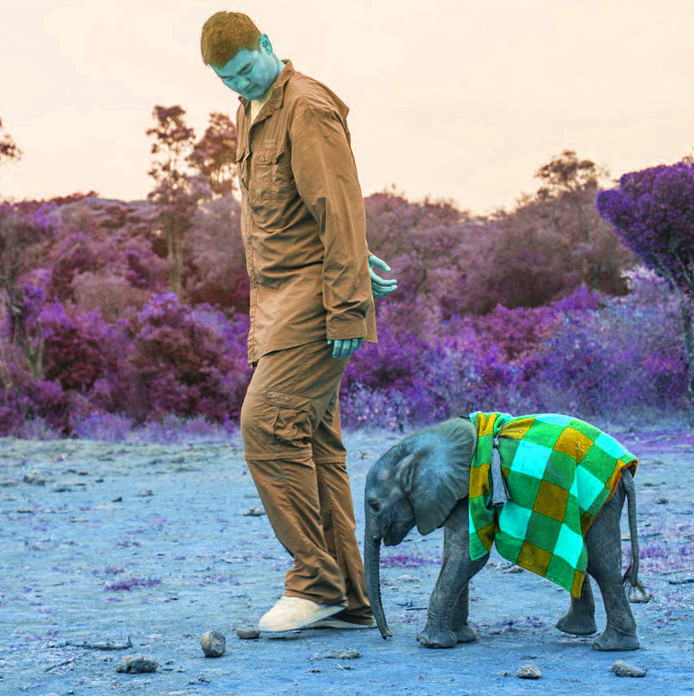
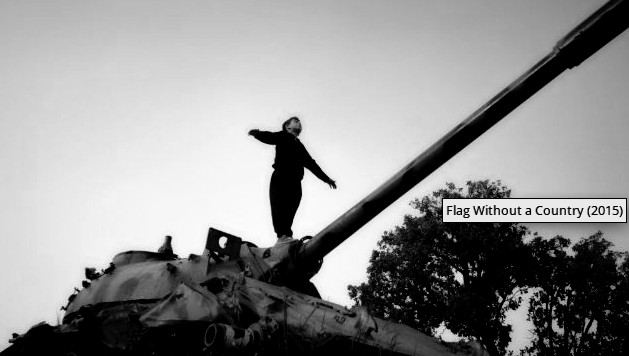
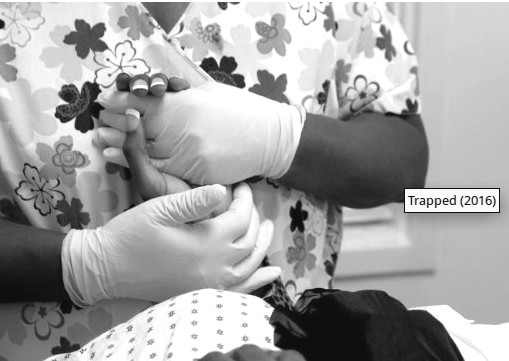


|
30 JANUARY, 2016; Wasatch Range Watershed
I recently saw several films that can help people talk about the spectrum of GIFT to FORCE that exists in work for social change and moral goodness at Slamdance, Windrider/Angelus and Sundance. While This Way Up was the most familiar to me in my work over the past two decades, the most intriguing combination of topics (human abortion and animal rights) are addressed in these pieces of work: Unlocking The Cage (2016), Trapped (2015) and the journalistic VR piece at Sundance's New Frontier. These kinds of work share the common underlying value of respect--for one life form or another, for animals and humans at different stages of development. And they explore aspects of the whole spectrum of possible strategic approaches to change.
At one end of the spectrum is a joy-based magnanimity that respectfulness bubbles into GIFT. The other end is a logic-based FORCE that laws, courts, and cops use when the heart is not necessarily available to guide human behavior. Activist attorneys must walk a wavy line when trying to appeal to the consciences of the people in their countries, in order to get laws changed, captives freed, and oppression stopped, because the very structure of every government allows folks with poorly-developed consciences to dictate or control the entire matrix of social relationships, as far as the law is concerned.
This wavy line is clearly seen in Hooligan Sparrow, a film about sex-worker activism in China aiming to stop government officials who literally rape children from getting away with such crimes. It's a wavy line because the attorneys involved don't represent an impartial legal structure; they use the law and courts to try to redress grievances when moral sanity has been broken, when kindness and compassion have been shattered by horrifying crimes against humanity. Such crimes are worthy subjects in many films, whether fictional accounts based in the truth of wars, or more straight-forward documentaries, because people need to hear from journalists and other storytellers, and the audiences recognize that the need is at least partially fulfilled by hearing/seeing the news.
The other wavy line danced by filmmakers is that between reality ("documentary") and fiction ("narrative"). After one beautiful film (Land of the Enlightened) on Afghanistan's child warrior-smugglers, the creators answered unapologetically during the Q&A that it doesn't matter how much is documentary vs. narrative ("fiction"); the point was to tell the truth about a culture and people in it. Variety Magazinecalls one Flag Without A Country a, "tribute to Kurdish resilience that walks a thin line between despairing and inspiring." That polemic is all-pervasive in documentaries at film festivals as we bounce between different stories unfolding on the big screens around town.
The lead attorney Steven Wise of the Nonhuman Rights Project (NhRP) speaks to a classroom at the beginning of the film noting that "160 animals are killed every time my heart beats" in the USA, as a way to try to grasp the enormity of violence against nonhumans throughout the US. He goes on to say that cetaceans, apes and elephants are not native to the USA, and members of those classes meet the practical criteria of natural autonomy that is the basis (legally) for their personhood. Personhood is the issue, whether for women in the 19th century, human slaves held legally in the US (each one used to be 3/5 of a person), and human fetuses thriving in-utero. Each of those three classes of humanity are nonetheless biologically human, whereas the intellectual and emotional leap (as controversial as it is) that the NhRP is trying to achieve is for patently non-human creatures. The problem I have with this is the same i have with many other social justice issues: i believe humans need to learn to respect each other first, to stop hurting each other conscientiously (war, the death penalty, nuclear terrorism, racism, domestic violence including abortion, classism, killer drones, etc.) and--if laws continue to help guide behavior for some people--then those humans need to have laws which don't allow such gross violence.
The attorneys in Unlocking The Cage needed to circumvent the common folks' and the judges' regular response that laws already protect welfare of non-humans, so there's no need to argue this stuff in court. In other words, the attorneys are constantly trying to get the judges to see that the issue is Habeus Corpus ("the Great Writ") vs. welfare/healthiness for non-human animals. It's about the illegal detention of autonomous beings, and akin to how mentally disturbed folks should not be incarcerated, but allowed to flourish with human supervision in a healthier setting. That's about the best they can do in the course of this documentary to get judges and the media and their opponents to see the relationship between human consciousness and the consciousness of cetaceans, apes and elephants. The activists in this movie do a poor job of using the best analogy, that a fetus or an infant or a toddler needs to have human love and parental protection, rather than be inhumanely held in jails and other spaces that hurt their psyches and easily cause death via neglect of their spirits and other emotional needs. At several times in this documentary we see Steven Wise challenged by folks recognizing the offensive nature of their argument when they use the analogy of prior eras where African American slaves and women were not granted the rights of persons in US legal and social milieus. It's a disgustingly terribly wrong-headed analogy--an embarrassing mistake on the parts of the attorneys to compare adult humans of different social classes to non-humans, particularly when our society still does a horribly poor job of honoring, respecting, and enabling love between different classes of humans to begin with. The analogy to slavery is terribly problematic, particularly when contemporary descendants of slaves still have defacto limitations on their rights, and less respect in media and culture than the descendants of their slave-holding forebears. It takes time for the white, anglo-saxon attorneys in this movie to come around to recognizing the non-offensive argument that infants and other humans who are not expected to have responsibilities nonetheless have rights under the law. Towards the end of the movie, the lead attorney finally compares the non-human animals to a "5-year old" in terms of human development and the responsibilities expected of a human child that young.
NhRP is trying to use Habeus Corpus (show the body) as a strategy to free some animals from captivity. The precedents don't exist in the USA, but we know that a river in New Zealand and trees in Burma that were declared priests get legal protection that way. In the USA, corporations and partnerships get personhood, whereas fetuses and non-human animals, in general, do not receive the legal rights of personhood. My argument (since the mid-1990s) has been and continues to be that we need to respect all life (both human and non-human), and that personhood is irrelevant to lovarchy. Personhood is similar to the legal concept of "rights", and i don't believe rights exist outside of law, so rights are a human construct that muddies the river-lines of love, anarchy, and respectful relationships between humans and (especially) within interspecies relationships of humans with non-humans. Yet, I understand the paradigm in which the attorneys exist, so I can respect their strategies within that system of expecting humans to honor the practice of upholding rights per se.
The doctrine of Habeus Corpus allows lawyers to repeatedly file court cases in order to bring forth the evidence. Using the foundation of autonomy of self-determining creatures, primarily adult humans in the past, Habeus Corpus is the tool NhRP is trying to use, and we see near the end of the movie, that Judge Barbara Jaffe granted a kind of temporary judgment indicating Habeus Corpus applies to the client ape in the particular case before her. Eight weeks earlier, (a few minutes in the film--the prior scene--), pro-nonhuman rights attorneys argue that the non-humans in the case should have special status, if not full rights. The State Attorney General of New York counters with "courts are not equipped" to take this on, where these arguments would lead to subsequent developments in law. A clip is shown from an internet article from October 15th, 2015 in England where human attorneys made headway in achieving rights for non-humans. The film closes with the words that NhRP is taking cases to courts on behalf of elephant clients in 2016. All that is findable on the internet now, and is a fitting ending to the movie regarding the story of the protagonists advocating for other species.
An "advocate" is not just the role of attorneys, but the role of some staff at abortion clinics. The latter are advocating on behalf of the wishes of the pregnant ladies who are their clients. Trapped explores resistance to the Targeted Regulation of Abortion Providers (TRAP) laws that limit the work of abortion providers. Strong evidence is brought forth in the virtual reality (VR) journalistic piece (sampled by DemocracyNow!) as to why the dialog must improve outside of abortion clinics. That evidence is the documentary audio of hateful white males yelling cruel epithets at women (or YOU, if you are wearing the VR headset!) on their way into medical facilities. Obviously, sanity and respect ought to increase when talking about abortion rights vs. prenatal human rights in the US.
Is there anyone advocating for the (legally) voiceless fetuses in the same way folks advocate for the (legally) voiceless great apes? Is there anyone who passionately advocates for all three simultaneously (pregnant humans, pre-natal humans, and non-human apes, cetaceans and elephants)? What about the children playing with DU shells in the post-battlefield? To carry the passion for any single one of these issues is burden enough, so the answer is probably a big NO. Individuals pick and choose their battles rather than fight four fronts simultaneously. Yet the overlap which is obvious to me is not glaring enough to cause an attorney or politician to tirelessly and vociferously work with precision for fetuses, women, children and cetaceans/apes/elephants simultaneously. Courts, cops and commissioners are busy with bureaucracy. Their realm is not the heart and soul of humanity. But prayer-activists and contemplatives can do many issues (support abortion-ready adults, support their babies-in-utero, and uphold respect for non-humans) tirelessly and passionately, going largely unnoticed in the world. I know there are such advocates quietly doing that spiritual work out there in the USA and beyond. It's the best, non-dualistic solution available: Love for all of God's creatures!
|